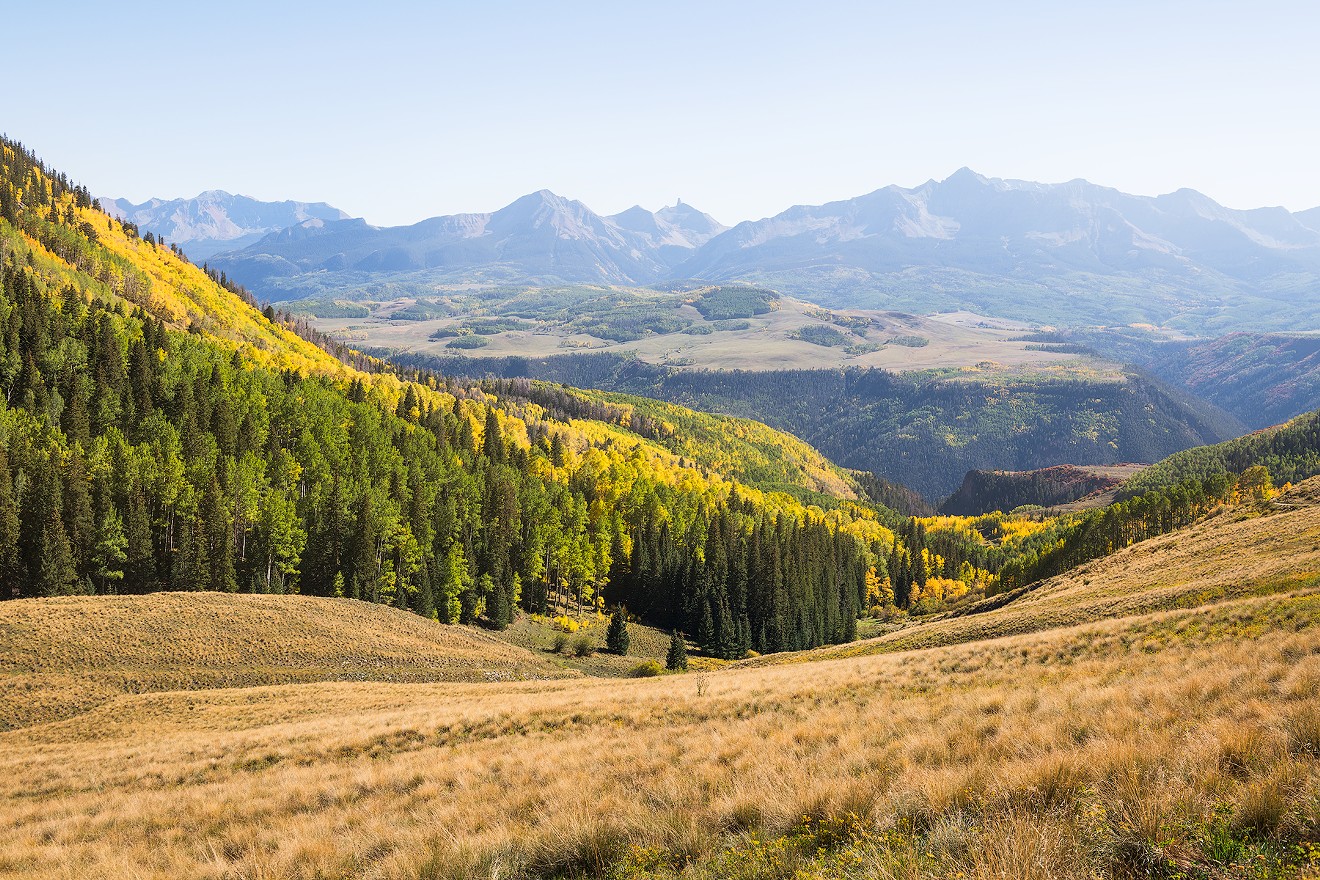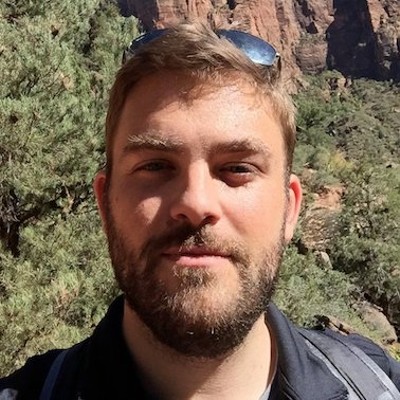A years-long effort by Colorado Democrats to forge a public-lands compromise between mountain communities, environmental groups and industrial interests has reached an important milestone. But Republicans still aren’t on board.
The U.S. House of Representatives voted 227-182 on Thursday, October 31, to pass the Colorado Outdoor Recreation Economy (CORE) Act, which would establish protections for 400,000 acres of federally owned land, most of it on the Western Slope.
“This really has been the culmination of a decade of work,” Representative Joe Neguse, a Democrat from Boulder and the bill’s lead sponsor in the House, told reporters on a press call Thursday. “Coloradans have been fighting for some of the most beautiful landscapes in our country to be preserved, and it has been a product of collaboration, careful consultation and negotiation, year after year after year.”
Among the major components of the CORE Act are 73,000 acres of new wilderness protections along the Continental Divide and in the San Juan Mountains, and the withdrawal of more than 200,000 acres of the Thompson Divide from future oil and gas leasing. It would also formally establish the Curecanti National Recreation Area near Gunnison and preserve the 27,000 acres surrounding Camp Hale, a World War II-era Army training facility north of Leadville, as a "National Historic Landscape" — a first-of-its-kind designation that would combine recreational opportunities, historical preservation and requirements for environmental remediation.
Altogether, the bill is the most significant piece of Colorado public-lands legislation in nearly thirty years, and top Democrats and conservation groups hailed its passage on Thursday.
“Colorado’s public lands and wild spaces are critical to the Colorado way of life and are why so many people love our great state,” Governor Jared Polis said in a statement. “The CORE Act will preserve hundreds of thousands of acres, preserving outdoor recreation opportunities for Coloradans and visitors alike.”
Despite a great deal of enthusiastic Democratic support, however, the CORE Act attracted just five Republican votes on final passage in the House, with all three GOP members of Colorado’s House delegation voting no. The bill now faces an uphill climb in the GOP-controlled Senate, especially without the support of Republican Senator Cory Gardner, who has consistently ignored calls to endorse the bill.
Democrats repeated those calls on Thursday. “Senator Gardner should join Senator Bennet in supporting this. It is a once-in-a-generation opportunity to safeguard nearly half a million acres of Colorado’s public lands,” Kelly Nordini, executive director of Conservation Colorado, said in a statement.
“Coloradans need a senator who will stand up for public lands and listen to local communities,” said former governor John Hickenlooper, the frontrunner for the Democratic nomination to challenge Gardner next year. “Now that the CORE Act has passed the House and is heading to the Senate, I am calling on Senator Gardner to join me and Coloradans from across our state in supporting it.”
Gardner’s lack of support has frustrated Democrats like Senator Michael Bennet, who has led the push for the CORE Act in the Senate and hoped its calculated, middle-of-the-road approach might help it win the backing of Gardner and other Colorado Republicans. (By contrast, Representative Diana DeGette’s Colorado Wilderness Act, which is still awaiting a committee vote, would designate ten times more land as wilderness, the federal government’s most restrictive public-lands classification, than the CORE Act would.)
“Coloradans wrote this bill,” Bennet told reporters on Thursday. “They hammered out compromise after compromise after compromise over the last decade to protect public lands and outdoor recreation and drive Colorado’s economy. It’s been done from the ground up. It is a testament to our state’s collaborative spirit. The bipartisan fiber of this bill is at its very core.”
Bipartisan fiber or not, neither Gardner nor Representative Scott Tipton, the Republican who represents the Western Slope district where most of the CORE Act’s provisions would take effect, appear willing to support the bill without significant changes. Despite a poll released last week by conservation groups showing nearly two-thirds support among Western Slope voters for increased wilderness protections, Tipton spoke in opposition to the bill on the House floor prior to Thursday’s vote and proposed a series of amendments aimed at weakening many of its protections.
“In its current form, the bill has not adequately incorporated the necessary feedback from the Western Slope communities which the bill predominantly impacts,” Tipton said in a statement. “It is my hope that as this bill makes its way through the Senate that these concerns are addressed, and a more inclusive process takes place resulting in a bipartisan bill we can all support.”
Earlier this year, Tipton introduced his own bill, dubbed the Colorado Recreation Enhancement and Conservation (REC) Act, which conservation groups have derided as “Wilderness Lite.” It omits many of the key provisions of the CORE Act and would actually eliminate 40,000 acres of “Wilderness Study Areas,” a designation typically regarded as a first step toward permanent wilderness protections.
Neguse dismissed Tipton’s claims, again emphasizing the years of negotiations between local communities and other interest groups that led to the CORE Act’s key provisions. “We have yet to receive any opposition from a community in the state of Colorado to a provision in this bill that impacts that community,” he said.
“What this all is about is protecting this land for future generations,” Neguse added. “I have a young daughter, and I want to make sure that she the same access to the incredible public lands that I had growing up in the state of Colorado. Because for us, protecting public lands is a way of life.”
[
{
"name": "Air - MediumRectangle - Inline Content - Mobile Display Size",
"component": "12017618",
"insertPoint": "2",
"requiredCountToDisplay": "2"
},{
"name": "Editor Picks",
"component": "17242653",
"insertPoint": "4",
"requiredCountToDisplay": "1"
},{
"name": "Inline Links",
"component": "18838239",
"insertPoint": "8th",
"startingPoint": 8,
"requiredCountToDisplay": "7",
"maxInsertions": 25
},{
"name": "Air - MediumRectangle - Combo - Inline Content",
"component": "17261320",
"insertPoint": "8th",
"startingPoint": 8,
"requiredCountToDisplay": "7",
"maxInsertions": 25
},{
"name": "Inline Links",
"component": "18838239",
"insertPoint": "8th",
"startingPoint": 12,
"requiredCountToDisplay": "11",
"maxInsertions": 25
},{
"name": "Air - Leaderboard Tower - Combo - Inline Content",
"component": "17261321",
"insertPoint": "8th",
"startingPoint": 12,
"requiredCountToDisplay": "11",
"maxInsertions": 25
}
]












